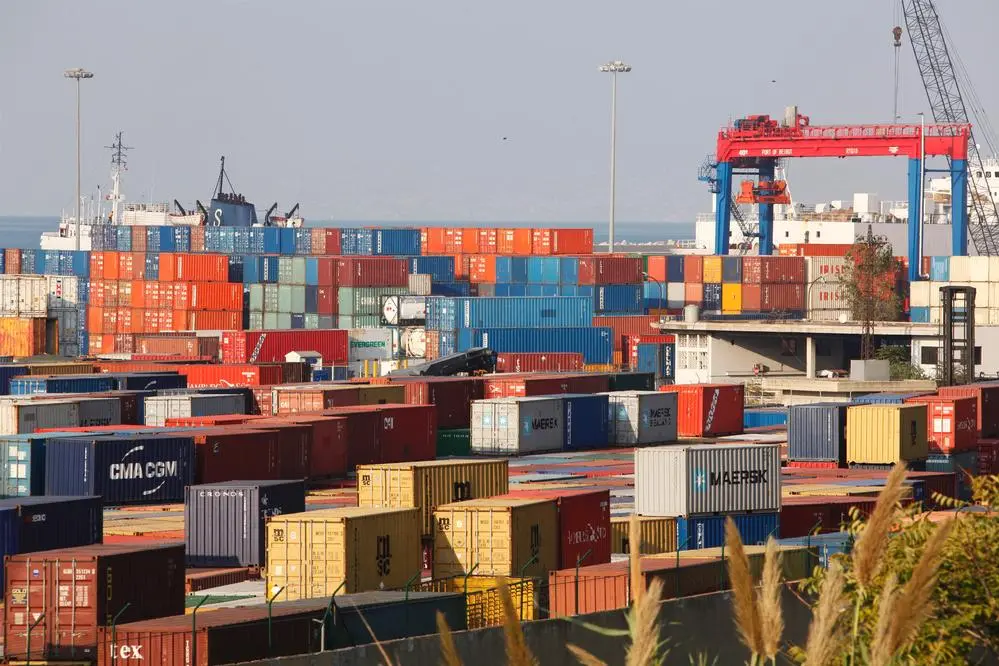PHOTO
BEIRUT - Lebanon must seek a deal with Syria so Lebanese exporters can reach wider Middle East markets via the Syrian border with Jordan now that Damascus has recovered state control of that frontier, Lebanon’s caretaker economy minister said on Friday.
Raed Khoury said it was vital that Lebanese exporters be able once again to send their produce overland through Syria to the Nassib crossing with Jordan and onwards to the wider region, calling it “a vital artery” for the Lebanese economy that had been closed because of the war.
“God willing, with the negotiations that will happen between the Lebanese and Syrian parties, and Jordan, this route will open because our (total) exports fell by 35 percent after the war in Syria erupted,” Khoury told Reuters in an interview.
Syrian government forces recovered control of the Nassib crossing in a Russia-backed offensive that has swept insurgents from a swathe of territory near the borders with Jordan and Israel since it began one month ago.
Khoury’s comments point to the significance of the Nassib crossing’s reopening for economies in the region. Before the Syrian conflict erupted in 2011, it served as a major transit route for hundreds of trucks a day transporting goods between Turkey and the Gulf in multi-billion dollar annual trade.
“In my opinion, it is in the Syrians’ interest that this crossing is opened, and in the Jordanians’ interest,” Khoury said. “Let’s see what the conditions and other factors are that must be taken into consideration,” he said.
One complicating factor for Lebanon is the political row over whether or not the country should have official ties with Damascus, with Lebanese politicians bitterly divided over the issue.
Lebanon has officially observed a policy of “disassociation” from the Syrian war since it began in 2011. Syrian President Bashar al-Assad’s Lebanese allies want the state to normalize ties, while his Lebanese adversaries say relations should be kept to the bare minimum.
Khoury is a member of the Free Patriotic Movement which was founded by President Michel Aoun and is politically allied to Hezbollah. Iran-backed Lebanese Shi’ite group Hezbollah has been fighting since 2012 in Syria in support of Assad.
“If the interest of Lebanon requires that we talk to the Syrian regime which controls a great deal of Syria, so be it,” Khoury said.
It was not yet known if the negotiations would take place between the Lebanese and Syrian states, or between the countries’ security agencies, he said. “But there must be an agreement because Lebanon’s economic interest is the priority.”
Reporting by Tom Perry and Laila Bassam, Editing by William Maclean
© Reuters News 2018




















